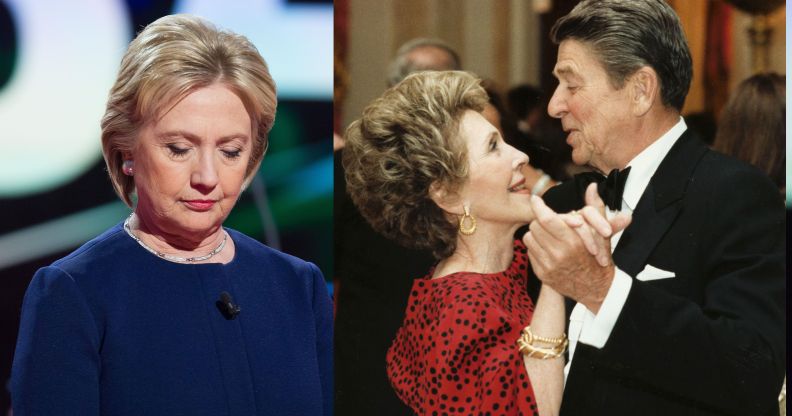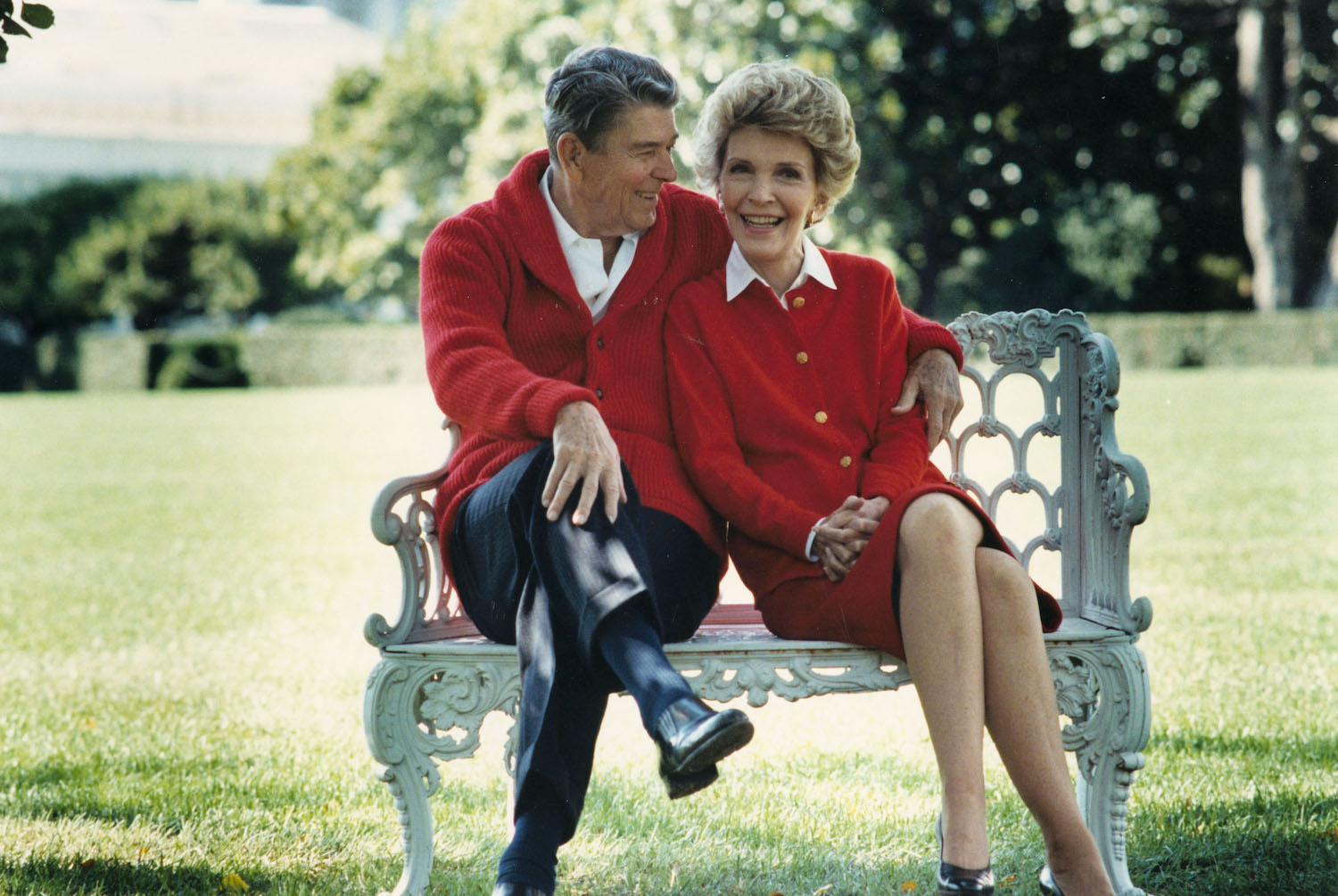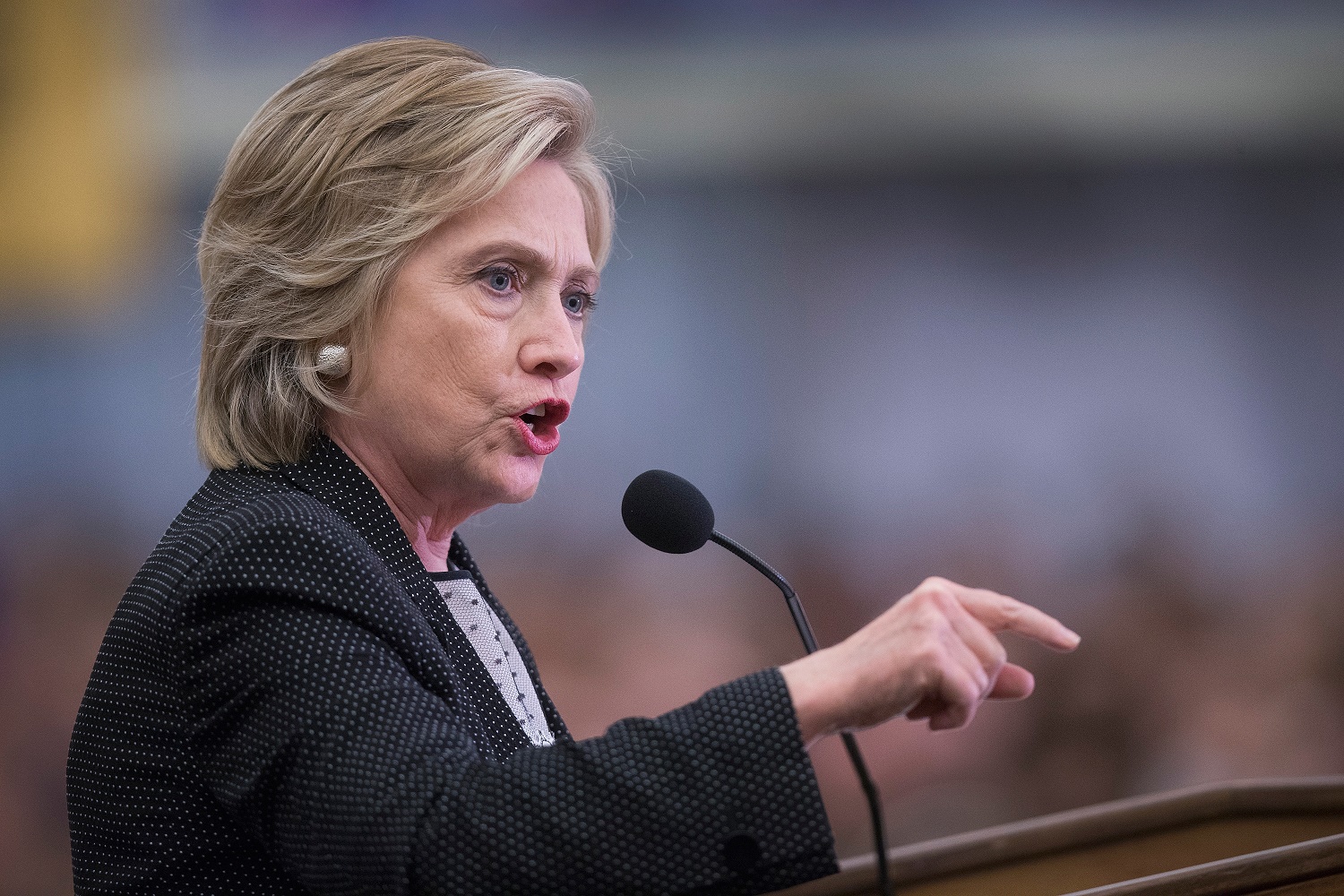Hillary Clinton doubles down on apology over Reagans’ AIDS history

Hillary Clinton has extended an apology she issued after claiming at Nancy Reagan’s funeral that she helped start a “national conversation” on AIDS.
Democratic Presidential hopeful Mrs Clinton on Friday retracted a statement praising the Reagans for starting a “national conversation” about AIDS.

The Reagans are often remembered for having ignored the AIDS crisis in the 1980s until thousands of people had died.
Speaking at the Ronald Reagan Presidential Library as mourners flocked to pay respects to Mrs Reagan at her funeral, Mrs Clinton said: “It may be hard for your viewers to remember how difficult it was for people to talk about HIV/AIDS back in the 1980s.
RELATED: THIS FILM SHOWS THE CHILLING RESPONSE THE REAGANS GAVE TO THE AIDS CRISIS
“And because of both President Reagan and Mrs. Reagan, in particular Mrs. Reagan, we started a national conversation, when before nobody would talk about it, nobody wanted to do anything about it.”
She went on to praise Nancy Reagan for her “very effective, low-key advocacy.”
“It penetrated the public conscience. And people began to say, ‘Hey we have to do something about this too,’” she said.
Many have taken to social media to express outrage, with some suggesting Mrs Clinton was attempting to “rewrite history”.
Clinton later tweeted a statement from her official Twitter account which read: “While the Reagans were strong advocates for stem cell research and finding a cure for Alzheimer’s disease, I missspoke about their record on HIV and AIDS. For that, I’m sorry.”
Now, in a lengthy statement published on Medium, Mrs Clinton has acknowledged that she “said something inaccurate”, saying she “made a mistake, plain and simple”.
Read the rest of Mrs Clinton’s statement below:
“To be clear, the Reagans did not start a national conversation about HIV and AIDS. That distinction belongs to generations of brave lesbian, gay, bisexual, and transgender people, along with straight allies, who started not just a conversation but a movement that continues to this day.
“That distinction belongs to generations of brave lesbian, gay, bisexual, and transgender people, along with straight allies, who started not just a conversation but a movement that continues to this day,” she continued.
“The AIDS crisis in America began as a quiet, deadly epidemic. Because of discrimination and disregard, it remained that way for far too long. When many in positions of power turned a blind eye, it was groups like ACT UP, Gay Men’s Health Crisis and others that came forward to shatter the silence — because as they reminded us again and again, Silence = Death. They organized and marched, held die-ins on the steps of city halls and vigils in the streets. They fought alongside a few courageous voices in Washington, like U.S. Representative Henry Waxman, who spoke out from the floor of Congress.”

“Then there were all the people whose names we don’t often hear today — the unsung heroes who fought on the front lines of the crisis, from hospital wards and bedsides, some with their last breath. Slowly, too slowly, ignorance was crowded out by information. People who had once closed their eyes opened their hearts.”
“If not for those advocates, activists, and ordinary, heroic people, we would not be where we are in preventing and treating HIV and AIDS. Their courage — and their refusal to accept silence as the status quo — saved lives.
“We’ve come a long way. But we still have work to do to eradicate this disease for good and to erase the stigma that is an echo of a shameful and painful period in our country’s history.”

